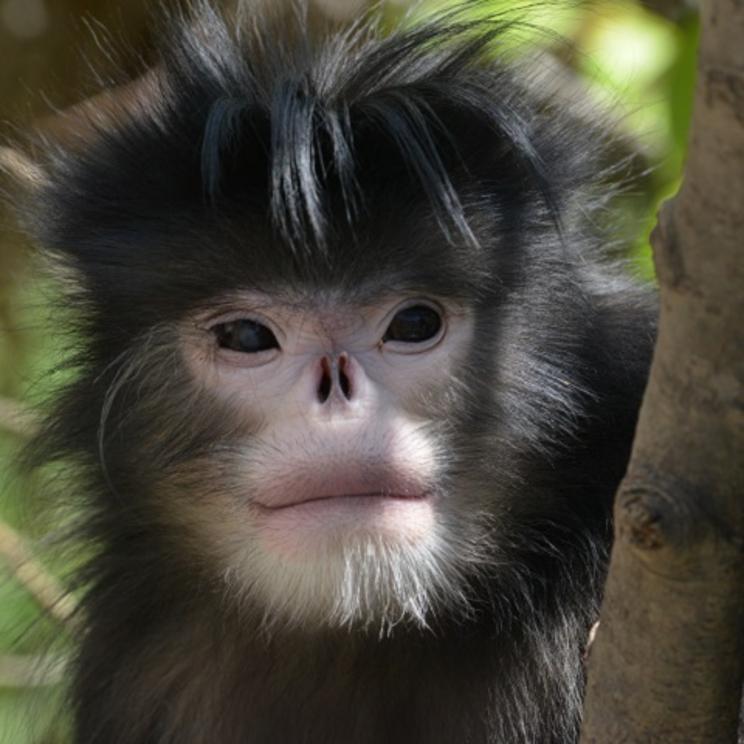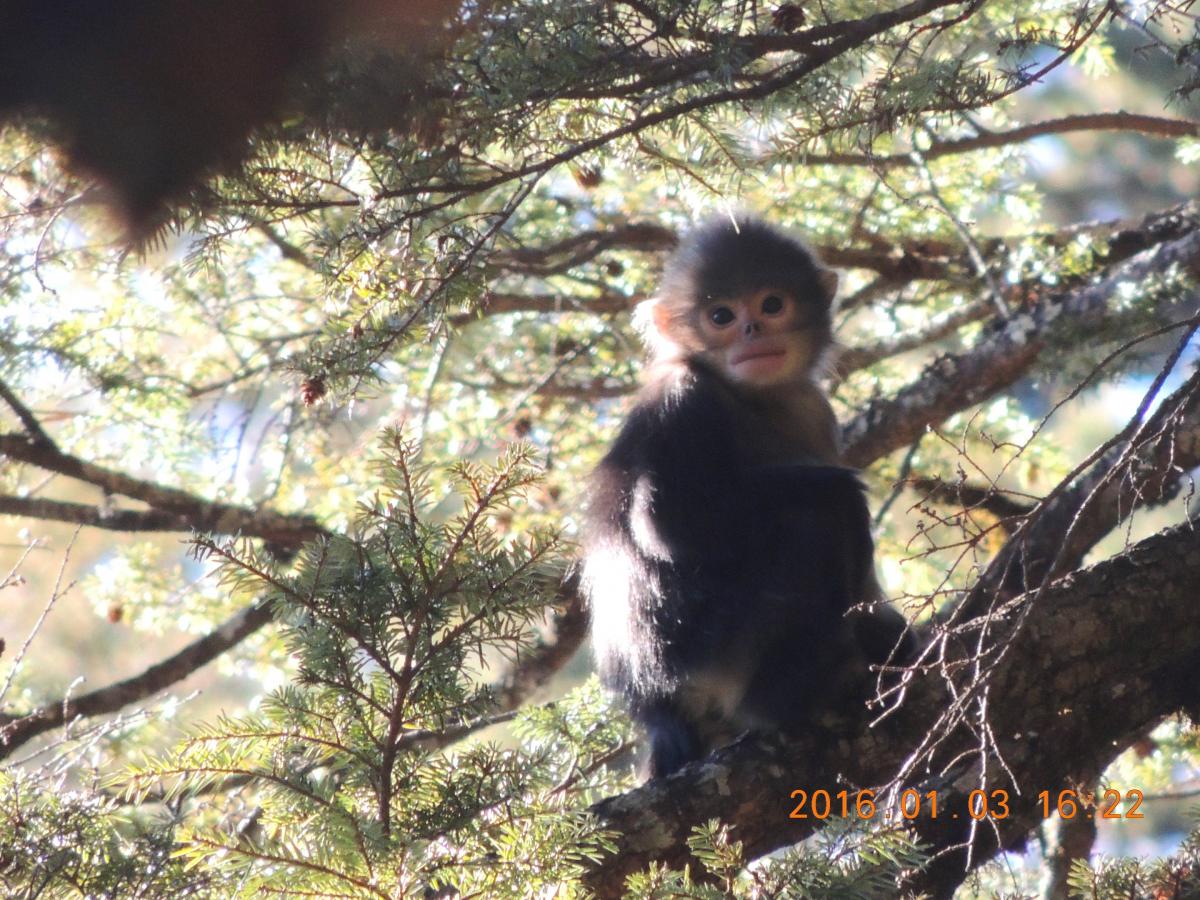
A decade ago, conservationists roaming the mountains of northern Kachin state discovered a new primate: the Myanmar snub-nosed monkey.
With black fur, tufty white ears, and a face like Michael Jackson circa 2005, the little guy needed help. Illegal wildlife trading, logging, and forest destruction linked to hydropower schemes threatened to wipe the species out completely.
The monkey was known to give its position away to hunters by sneezing in the rain—a symptom of its upturned nose—but fortunately those hunters are now being replaced by researchers, as the Ministry of Natural Resources and Environmental Conservation has designated the region as the Imawbum National Park.
The protected area covers 386,176 acres in Hsawlaw and Chipwi townships, reported 7Day News, and is also home to other threatened species such as red panda, Asiatic black bear, and takin, a goat-antelope hybrid.
When the snow falls during the winter, the monkey—also known affectionately as the “snubby” by scientists—descends from the forests to lower reaches near villages.
The snubby was discovered by scientist Ngwe Lwin of Flora and Fauna International, which joined Dali University and the German Primate Centre to produce a conservation status review in 2018 in order to uncover how the critically endangered primate was faring.
Despite an estimated population of 260 to 330 snubbies, the report was optimistic about their future. Community-based awareness work reduced local hunting pressure, it stated, while the implementation of a 2015 trans-boundary agreement between China and Myanmar reduced illegal wildlife trade and illegal logging.
The Myanmar military and a number of armed groups are present in the region, according to Radio Free Asia in a February report on food shortages after China closed border checkpoints to curb the spread of the coronavirus.
Among the groups are the rebel Kachin Independence Army (KIA), the pro-Myanmar army militia National Democratic Army-Kachin (NDA-K), and the Lisu and Rawang militias.


